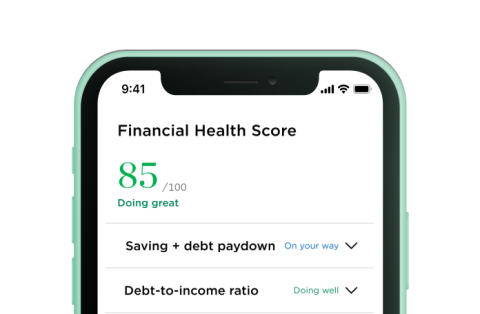Roth IRA Withdrawal Rules

Many or all of the products featured here are from our partners who compensate us. This influences which products we write about and where and how the product appears on a page. However, this does not influence our evaluations. Our opinions are our own. Here is a list of our partners and here's how we make money.
The investing information provided on this page is for educational purposes only. NerdWallet, Inc. does not offer advisory or brokerage services, nor does it recommend or advise investors to buy or sell particular stocks, securities or other investments.
Each retirement account comes with its own tax advantages, and what sets the Roth IRA apart is tax-free withdrawals in retirement.
You pay taxes on the money you put into a Roth IRA upfront, the money grows in the account tax-free, and you can make qualified withdrawals in retirement tax-free.
That’s the opposite of traditional IRAs and 401(k) plans, in which you contribute pretax money and pay taxes on the distributions.
» Learn more about traditional IRA withdrawal rules
Making those tax-free withdrawals from a Roth IRA depends on when — and what — you’re withdrawing, or else taxes and penalties could apply.
When can you withdraw from a Roth IRA?
Roth IRA contributions can be withdrawn at any time without penalty, but other rules apply to Roth investment earnings.
In general, two criteria need to be met for penalty-free withdrawals of all funds from a Roth IRA: the account has been open for at least five years and the account owner is age 59 ½ or older.
There are some exceptions, which would allow individuals to tap into their Roth IRA earnings early, and potentially without penalties and taxes.
» See our picks for best Roth IRA accounts

Get a custom financial plan and unlimited access to a Certified Financial Planner™
NerdWallet Advisory LLC
Roth IRA distributions
Before making a Roth IRA withdrawal, also known as a distribution, there are the two main rules to remember:
Contributions — that is, money you added into the Roth IRA — can be withdrawn at any time without taxes or penalties. That’s because you already paid taxes on the money used to fund the account.
Different rules apply to taking out investment earnings. This applies to money that grows in the account, and is where things start to get more complicated. If you're not careful, you may owe penalties and taxes.
Roth IRA qualified distributions
To make a qualified distribution of investment earnings from a Roth IRA with no taxes or penalties, the Roth IRA must be at least five years old and one of the following applies:
You are age 59 ½ or older.
The withdrawal is due to a disability.
The withdrawal is made to a beneficiary or your estate after your death.
The withdrawal for is for buying, building, or rebuilding a first home (up to a $10,000 lifetime limit).
» Learn more about the 5-year rule for Roth IRAs, and how it applies to accounts, conversions, and beneficiaries.
Roth IRA non-qualified distributions
Making a Roth IRA withdrawal outside of the above requirements could result in income taxes and a 10% penalty.
However, there are exceptions to the 10% penalty — but not income taxes — if you meet one of the following:
You have unreimbursed medical expenses that are more than 7.5% of your annual gross income.
The distribution is for the cost of your medical insurance during unemployment.
You are receiving distributions in the form of a series of substantially equal periodic payments.
You are taking the distribution for qualified higher education expenses.
The distribution is due to an IRS levy.
You made the withdrawal when you were a reservist, as defined by the IRS.
The distribution is for a qualified birth or adoption of a child.
The distribution is a qualified disaster distribution or qualified disaster recovery distribution.
The distribution is a corrective distribution.
NerdWallet rating 4.9 /5 | NerdWallet rating 5.0 /5 | NerdWallet rating 4.1 /5 |
Fees $0 per online equity trade | Fees $0 per trade | Fees $0 per trade |
Account minimum $0 | Account minimum $0 | Account minimum $0 |
Promotion None no promotion available at this time | Promotion None no promotion available at this time | Promotion Get up to $700 when you open and fund a J.P. Morgan Self-Directed Investing account with qualifying new money. |
Planning a Roth IRA withdrawal
Making a financial plan for retirement often starts with estimating how much you'll need and how much you can contribute, but it's also includes planning withdrawals too.
With a Roth IRA, withdrawals are already more flexible because you can take out contributions at any time. But there's one more reason: Roth IRAs aren’t subject to required minimum distributions (RMDs) compared with a traditional IRA or 401(k) plan.
That means account owners aren’t required to make withdrawals, even in retirement, and can allow the funds to continue to grow. And after account holders die, the money in the account can be passed along to the account beneficiary.
Taking money out of a Roth IRA early means potentially losing out on long-term growth, but if you're in a tight spot financially, it can be one option.
Some parameters to guide your decision about an early Roth IRA withdrawal could include how much you think you'll need, whether you're eligible for a qualified or non-qualified withdrawal, and estimating what the taxes and penalties (if any) might be if you plan to take out earnings.
» Ready to get started? Learn how to open a Roth IRA

On a similar note...









